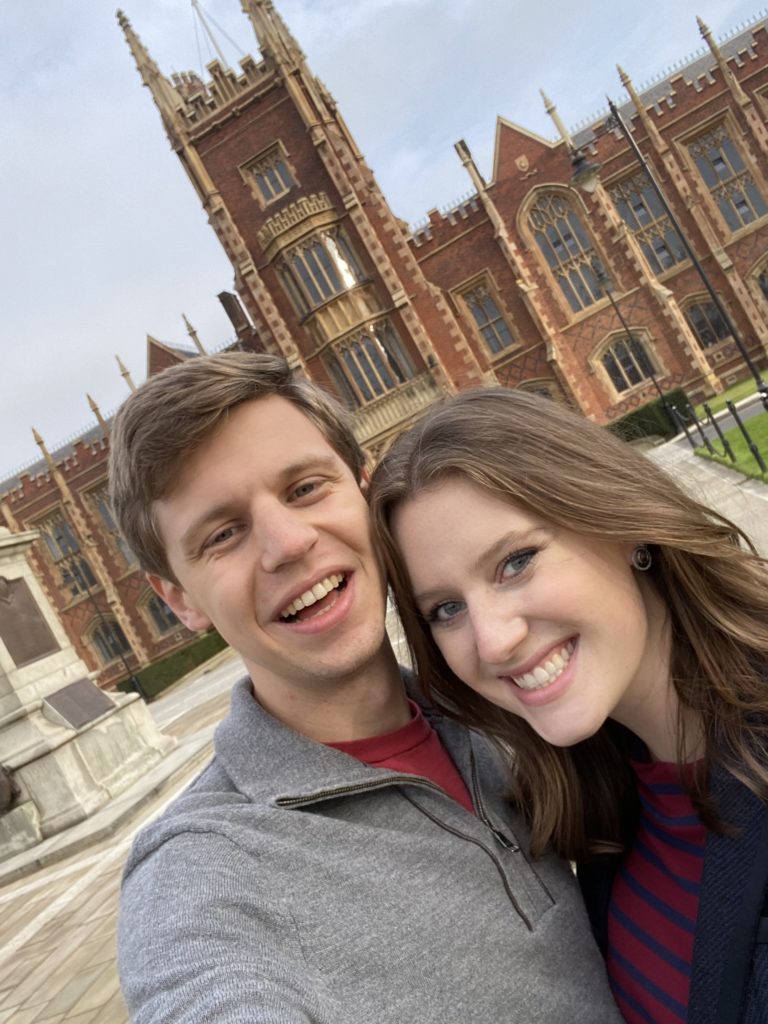“Wee”—everybody says it here. To quote Derry Girls character James Maguire, “People here use the word wee to describe things that aren’t even actually that small!” “Wee” is a great signal that I am far from my home in Knoxville, Tennessee.
My first 14 days in Belfast were spent in a bedroom by myself. It was a tough way to start a life in a new place. Even after quarantine, life in the times of Covid-19 made it tough to get to know this city and the people who live here.
I felt separated from everything—separated from my family and friends back home; separated from Belfast, as I watched it through my quarantined window or from six feet away, mask on.
There seems to be separation everywhere. Families and friends are physically separated in the face of Covid-19; my country’s citizens are ideologically separated. When I arrived in Belfast, my cab driver talked about a new threat of separation: the latest Brexit deal that could further separate Northern Ireland from the Republic of Ireland and cause even further separation in Northern Ireland between loyalists and republicans.
Belfast is no stranger to separation. The Troubles, and the oppression of Catholics that preceded it, brought periods of intense and violent separation between Catholics and Protestants. The separation permeated every area of life.
Belfast’s history of separation, or rather its revolution of unity, is what brought me here in the first place, so it’s only fitting that Belfast would teach me how to see beyond the immediate separation I felt to embrace all the newness that awaited me.
This past weekend I met Norman. Norman is the classic example of a Belfast-native who is warm, welcoming, and excited to help new people understand his home—its history and progress. He reminded me of the people I met when I was in Belfast for the first time, whose warmth was a version of southern hospitality from home.
As Norman took me through the Shankill and Falls roads and told me about his own experience of growing up in the separation of the Troubles, he was quick to also share his enthusiasm of how far his city had come since those days. We talked about shared education and the integrated school he wanted his children to attend. He told me what it meant to him when Bill Clinton visited Northern Ireland in 1995.
Norman’s tour helped me feel more connected to Belfast. Norman also reminded me of a Belfast spirit to reject old separation and to look for new connections.
Now, when I hear “wee,” I think of connections to Belfast, instead of separations from home (and Derry Girls, of course—a must-see).
I’m grateful to Belfast and Norman for reminding me to embrace a perspective of discovery, connectedness, and unity, even when it’s easy to see separation. I’m grateful for the reminder of why I chose to spend this year of my life in such a beautiful place as Belfast.

